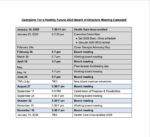GEAR
Velit tacimates pro ut, te vim alia invenire. His cu semper eripuit. Alia argumentum eos cu, mel ne quis nostrud dolorum. Verear nusquam evertitur et has, cu vix homero gloriatur incorrupte. Ut quod appareat has. Posse inermis appareat vix eu. Eu duo putent aperiam, agam eruditi ad qui, qui id graeco praesent.
Mei idque menandri eu, quodsi vocent at est, mucius maiorum cu eos. Ea eam elitr civibus erroribus, ex vix percipit platonem electram. Nam nonumes repudiare te, aeque repudiare ex vel. Ex vide graeci admodum nec, zril comprehensam vix ut. Suas decore fabellas mel et, no vel noster audire vidisse.
Stay Connected
Sign up to receive updates from GHF!
Resources (15 items) Go to Library
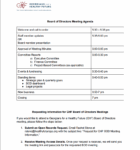
2025 Board of Directors Meeting Agenda
July 29, 2025

2024 Annual Report
May 9, 2025

Georgia’s health care waivers: What each waiver does and their impacts on health insurance eligibility in Georgia
February 14, 2025

2025-2026 Policy Priorities
January 13, 2025

FACT SHEET: Georgia Housing Voucher Program
October 8, 2024

Enrollment Assistance Brochure
September 13, 2024

Protect Your Peach Palmcard
September 13, 2024

FACT SHEET: Georgia’s Low Income Housing Tax Credit (LIHTC)
August 27, 2024
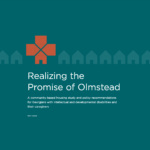
Summary: Realizing the Promise of Olmstead
July 28, 2024
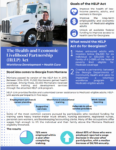
The Health & Economic Livelihood Partnership (HELP) Act
March 4, 2024

Health Care Unscrambled 2024 Slides
January 12, 2024
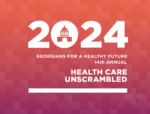
2024 Health Care Unscrambled Program
January 12, 2024
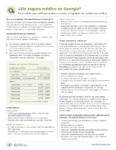
Pathways Eligibility Flier – Spanish
November 20, 2023

Income Limits, 2024
November 9, 2023
Policy Corner
Progress takes time, but it’s driven by people who never stop pushing for it. At this year’s Celebration of Progress & Possibilities, we honor two changemakers whose lifelong dedication to health care and health policy has had a profoundly positive impact on the lives of Georgians: Andy Miller and Wendy Tiegreen. MORE >
Update – August 2025: Enhanced Affordable Care Act premium tax credits (ePTCs) still expire on December 31, 2025, unless Congress acts. In 2025, Georgia Access enrolled over 1.5 million Georgians, 93% of whom depend on these subsidies to make health coverage affordable. Without an extension, premiums in Georgia are projected to jump over 75% on… MORE >
Since 2008, Georgians for a Healthy Future has partnered with community members, organizations, and decision-makers to help make health care more affordable and accessible across the state. In 2024, your support has helped us make meaningful progress: Making Medicaid and Marketplace Coverage Work Better for Georgians MORE >
Georgians with Medicaid or Georgia Access coverage: Your story matters. Georgians for a Healthy Future is partnering with Families USA to amplify the voices of Georgians who rely on Medicaid and affordable health coverage. If you’ve been helped by Medicaid or the enhanced premium tax credits through Georgia Access, we invite you to share your… MORE >
Georgians for a Healthy Future is launching a new Caregiver Coalition, and we want you to be part of it. Why Join the Caregiver Coalition? Family caregivers play a critical role in supporting the health and well-being of Georgians. Whether you care for an adult or child with an intellectual or developmental disability, a physical… MORE >
ackground On May 22, the U.S. House passed a sweeping budget bill, known as the “One Big Beautiful Bill” Act. The budget bill proposes significant changes to the Affordable Care Act (ACA) Health Insurance Marketplace, which is known as Georgia Access in our state.Proponents say these changes will cut costs, but they would also make… MORE >
ackground On May 22, the U.S. House passed a sweeping budget bill, known as the “One Big Beautiful Bill” Act. The budget bill proposes significant changes to the Affordable Care Act (ACA) Health Insurance Marketplace, which is known as Georgia Access in our state.Proponents say these changes will cut costs, but they would also make… MORE >
Early this morning, the U.S. House passed a budget proposal that would make the largest cuts to Medicaid in the program’s 60-year history and the most sweeping change to U.S. health policy since the Affordable Care Act. Although framed as “program integrity” and cost-saving measures, these provisions would restrict health coverage, squeeze state funding, and… MORE >
See the impact. Join the movement. Georgians for a Healthy Future has long been a leader in fighting health disparities, advocating for expanded coverage, and ensuring affordable access to preventive services. What does that really mean? It means fighting for the 240,000 Georgians currently stuck in the coverage gap. It means standing alongside parents, caregivers,… MORE >
Medicaid, the federal health insurance program for low-income children and some adults under 65, is essential to the physical and financial health of Georgia families and the state as a whole. Medicaid covers almost 2 million low-income Georgians (18% of the state’s population), serves as a crucial lifeline for Georgia’s rural hospitals. It also accounted… MORE >
y Holly Lang In a March ruling that could hold implications for all nonprofit hospitals, the Illinois Supreme Court stripped not-for-profit Provena Covenant Medical Center of its exemption from property tax, stating that the hospital did not provide enough charity care to justify that exemption. MORE >
y Timothy Sweeney Senior Healthcare Analyst, GBPI As we approach the final seven legislative days for 2010, there’s still a great deal of uncertainty surrounding both the schedule the General Assembly will set for themselves, as well as with the policy-related results of the session. MORE >
We are now in the 28th day of the legislative session and as cross-over day approaches, things are heating under the gold dome. By midnight on Thursday, bills must clear their chamber of origin if they are to pass this term unless they are attached to another eligible measure. Georgians for a Healthy Future will… MORE >
On Saturday, March 27th at the Georgia International Convention Center in Atlanta the Georgia Free Clinic Network and the National Association of Free Clinics are sponsoring a Free Health Clinic for the state’s uninsured residents. Based on the success of similar events country-wide, we anticipate serving 1800-2200 uninsured Georgians. Similar free clinics have been sponsored by …… MORE >
y Michelle Putnam For those inclined to live under a rock, the state of Georgia is in a deep recession, with revenues steadily declining over the past year and showing no sign of recovery. In Georgia, 20% of adults and 18% of high school students smoke, costing our $2 billion a year in smoking-related health… MORE >
A new study released this week by Georgia State University found that, in sheer numbers, only California, Texas, New York, and Florida have more uninsured people than Georgia. That's right: we rank 5th in the total number of uninsured, but 9th in total population. Comprehensive health reform would provide affordable avenues to coverage for the… MORE >
y Cindy Zeldin As the 2010 legislative session opens, Georgia faces a dilemma: With a sluggish economy and unemployment hovering over 10 percent, there is a spike in the need for safety net services at the very time that state revenues are sagging. MORE >
The Community Living Assistance Services and Supports Act (CLASS Act) would offer a meaningful non-means-tested complement to the Medicaid program with a focus on helping individuals overcome barriers to independence that they may confront due to severe functional impairments. MORE >
In these difficult economic times, the loss of a job is frequently compounded by the loss of the health insurance that had been tied to it. With unemployment rates hovering near 10 percent, more and more Georgians are facing this dual predicament. MORE >
y Cindy Zeldin The Georgia Budget & Policy Institute’s Tim Sweeney makes a compelling case for expanding Medicaid to cover more Georgians in today’s AJC as part of a pro/con piece on the opinion page. Read it here. MORE >
